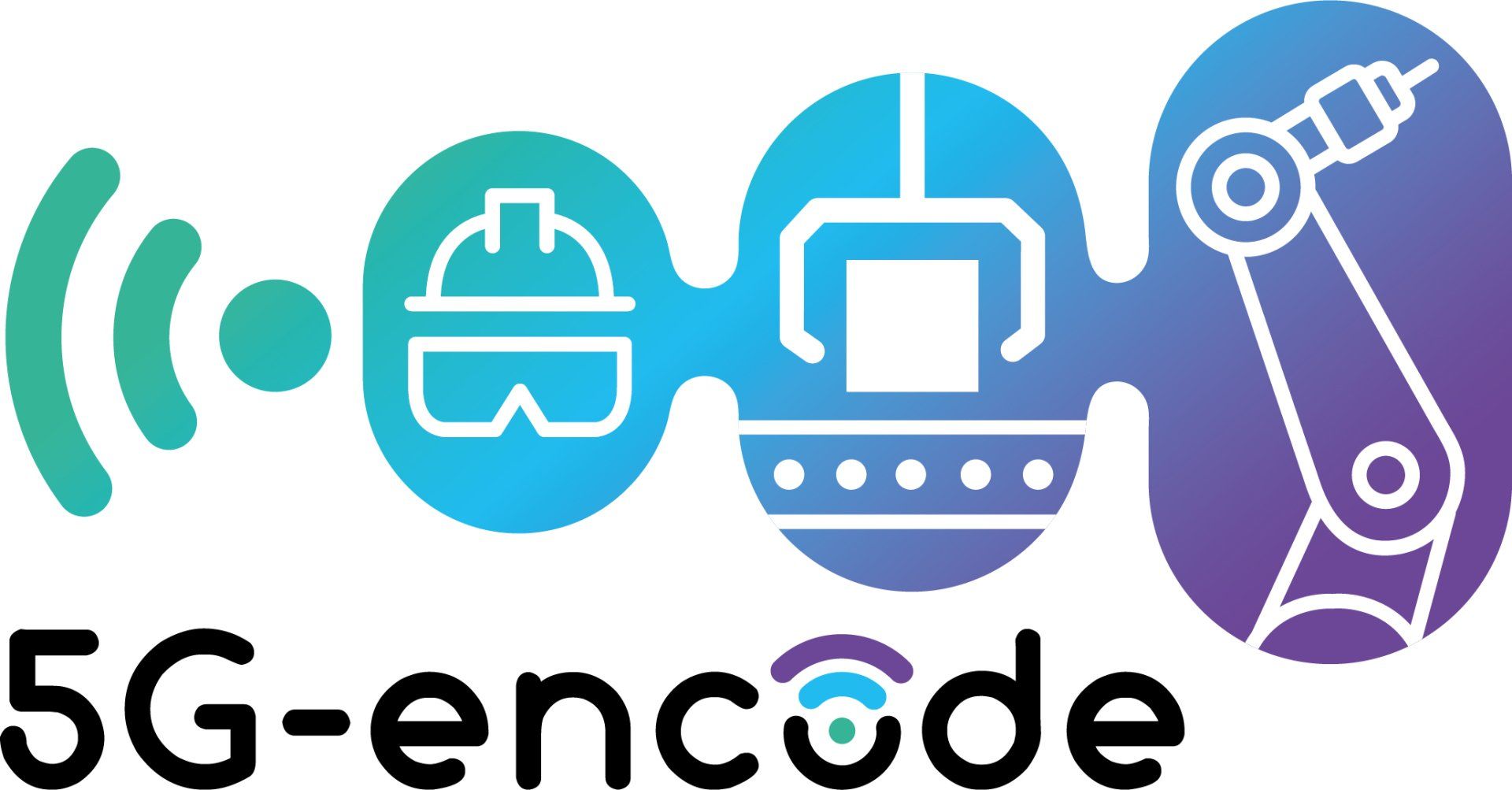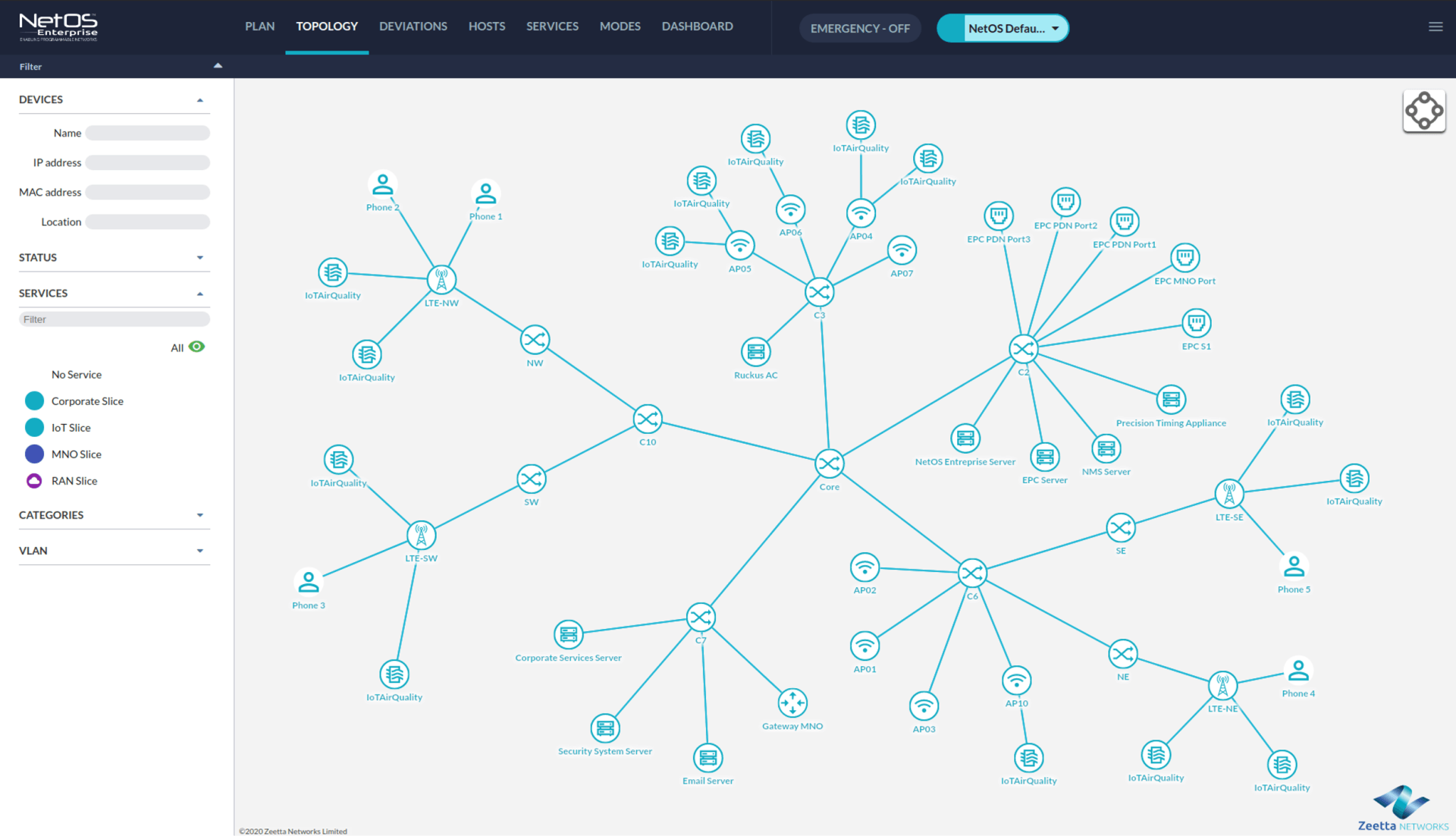
Blog Layout
Smart Internet Lab is transforming our region's network infrastructure
Jun 23, 2020
Two new projects from the University of Bristol’s Smart Internet Lab are creating new and exciting changes to our region’s network infrastructure. The new projects are set to transform the manufacturing sector and advance rural connectivity, a critical capability for the UK government.
Following from the successful delivery of the 5G Testbeds and Trials Programme
that established University of Bristol’s 5GUK Test Network, the Smart Internet Lab
has been awarded UK Government funds from Department for Digital, Culture, Media and Sport (DCMS) to deliver two new projects as part of the £65 million package for 5G trials.
Dimitra Simeonidou, Director of the Smart Internet Lab said “We are very pleased the University of Bristol and Smart Internet Lab
are making advances in the region's critical infrastructure. We are transferring knowledge to the manufacturing sector and at the same time we are supporting the roll out of 5G to rural Wales.”
The 5G research at Smart Internet Lab is going to play an important role in creating opportunities within the vertical markets by supporting their specific needs for networks and innovative technological advancements.
The 5G Enabling Connectivity for Digital Engineering (5G-ENCODE) project is going to transform of the manufacturing sector in the West of England. 5G-ENCODE has been awarded £9m funding from DCMS making it the UK government’s biggest investment in 5G for manufacturing to date.
The two-year project will examine new business models for private mobile networks in the manufacturing sector. It will investigate three key industrial 5G use cases on improvement of productivity and efficiency of composite design and manufacturing; on interactive augmented reality (AR) asset tracking across multiple sites and locations; and on industrial system management.
5G will help industries with new processes to increase precision, quality and safety in manufacturing and the application of future materials will be able to for example, reduce the carbon footprint by reducing fuel consumption.
The Connecting Communities in the Rural Economy (CoCoRE) project will look at the intervention on rural connectivity in Wales. The CoCoRE project will receive £5m in UK Government funding to connect rural communities across Monmouthshire and Blaenau Gwent. The new testbed, located in South East Wales, will demonstrate how 5G technology can have a positive impact and open new opportunities for businesses and citizens. These advancements could change the way citizens interact with critical services such as transport whilst propelling the visitor economy in the region.
The advancement in 5G technology will also add more appeal to tourist attractions by providing engaging and interactive information and experiences. Enriching visitor experience through 5G will increase visitors, bring in more revenue to remote areas and have a wider global reach.
The aim of the projects is to promote and maximise economic growth across South Wales and the West of England alongside the Western Gateway strategic partnership.
With the ground-breaking research and world leading expertise in 5G, The University of Bristol’s Smart Internet Lab will work with key partners in the region, including big technology companies and local SMEs to explore innovative ways to connect cross border, urban and rural communities in the UK and revolutionise the manufacturing sector for the future.

14 Dec, 2020
5G-ENCODE is a pioneering project looking to make the benefits of 5G technology a reality for UK manufacturers. The project is one of the UK government’s biggest investments in 5G for manufacturing to date and has been set up to establish clear business cases and value propositions for the application of 5G technology in manufacturing. Led by Zeetta Networks, activity started in early 2020 and will run until March 2022. The key objective is to design and deliver a private 5G network within the National Composites Centre. This will be used to explore new business models and 5G technologies, including network slicing and splicing, within an industrial environment. Specifically, activity will focus on three areas: AR/VR to support design, manufacturing and training Monitoring and tracking of time sensitive assets Wireless real-time in-process monitoring and analytics These use cases will be sector agnostic and will be deployed across a range of industries enabling new business models and opportunities, streamlining operations and creating additional revenue streams. This is especially important as the nation navigates economic turbulence brought about by the Covid-19 pandemic.

by websitebuilder-hub
•
23 Oct, 2020
5G-ENCODE switches on the first phase of its network at the National Composites Centre. This will test existing technologies and provide a baseline against which the 5G network capabilities will be compared. The project will establish and test 5G use cases to make the benefits of 5G a reality for UK manufacturers. London, 22nd October 2020: Today, 5G-ENCODE, a pioneering project that aims to make the benefits of 5G a reality for UK manufacturers, announces the switch on of its Phase One Industrial Private 4G Network at the world leading National Composites Centre (NCC), to establish a baseline for existing technology. This comes ahead of its Phase Two Industrial Private 5G Network, which will go live in 2021. The Phase One 4G network has been designed and developed by leading partners, Zeetta Networks and the University of Bristol’s Smart Internet Lab, and installed at the National Composites Centre. It will be used to establish a baseline for existing cellular technologies, against which results from the private 5G network, which will be installed in Phase Two of the project, can be benchmarked. The goal is to prove the value of 5G for use case performance and user experience and demonstrate the extent to which businesses will get a real return on investment from deploying private cellular networks within manufacturing. 5G-ENCODE is part of the Department for Digital, Culture, Media and Sport’s (DCMS) 5G Testbeds and Trials Programme and is one of the UK government’s biggest investments in 5G for manufacturing to date. New technologies, particularly 5G, hold the key to unlocking significant benefits for manufacturers, including streamlining operations and increasing productivity. The project has been set up to establish clear business cases and value propositions for the application of 5G technology in manufacturing. The cellular network will be used to explore new business models and 5G technologies, including network slicing and splicing, within an industrial environment. Specifically, activity will focus on three areas: Augmented Reality / Virtual Reality (AR/VR) to support design, manufacturing and training. Monitoring and tracking of time sensitive assets. Wireless real-time in-process monitoring and analytics. In the Phase One 4G Network, the focus will be on testing the asset tracking and AR / VR use cases. Each use case will be tested and data gathered on network performance, user experience and business benefit realisation. This process will be repeated for the Phase Two 5G Network and the data between 4G and 5G will be compared and analysed. Vassilis Seferidis, co-founder and CEO at Zeetta Networks says: “Zeetta Networks is proud to be the leading partner for the 5G-ENCODE project. The use cases being explored will be integral to accelerating Industry 4.0. Phase One is just the beginning, and we’re confident that this project will be key to revitalising the UK’s manufacturing industry and safeguarding it against the next global recession”. Marc Funnell, Head of Digital, and Director of DETI, National Composites Centre, says: “As a world-class research centre, the NCC is delighted to be the industrial test bed for the 5G-ENCODE consortium of leading industrial innovators. Today’s announcement marks the start of this project delivering real-life impact through the development of specific use cases for the 5G-ENCODE and Digital Engineering Technology & Innovation (DETI). We look forward to testing and sharing the results”. Xavier Priem, Senior Research Fellow at Smart Internet Lab says: “Smart Internet Lab is proud to support and provide expertise to the 5G-ENCODE consortium. We are delighted to be working alongside communities, telecom and Industry 4.0 experts in this project by providing knowledge on 4G & 5G technologies on the delivery of use cases. Our work will be fundamental in introducing new capabilities into Industry 4.0 processes and systems which will provide more flexibility.” --ENDS-- About 5G-ENCODE 5G-ENCODE is a £9 million collaborative project aiming to develop clear business cases and value propositions for 5G applications in manufacturing. The project is partially funded by the Department for Digital, Culture, Media and Sport of the UK Government as part of its 5G Testbeds and Trials Programme. It is run by a consortium of nine partners: Zeetta Networks, National Composites Centre, Mativision, Plataine, Solvay, Toshiba, Telefonica, Siemens and the University of Bristol’s Smart Internet Lab. https://www.5gencode.com Download



